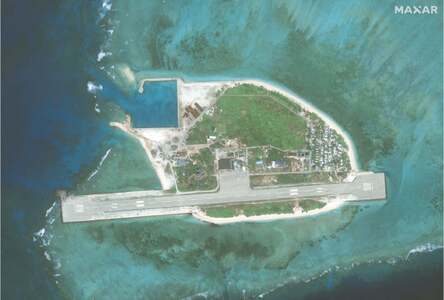WARSAW: Signing a missile-defence deal with the United States has earned Poland nothing less than the threat of nuclear attack from Russia a threat that might not sound so empty these days, given that nation’s bloody battle with Georgia.
That conflict has plunged Europe into serious crisis, sending waves of jitters through Poland and other eastern nations, once-occupied parts of a Soviet Empire that Russia some fear might want to reconstruct. Russia’s actions also have succeeded in driving deeper the geographic wedge in Europe.
“Slowly, the Iron Curtain is being rebuilt,” said Jacek Palasinski, a foreign affairs commentator for the Polish television network TVN24. “Europe will be divided again the lines are different, pushed farther east, but the division is the same. And dangerous.”
Ukraine and Moldova are worried that they could be Russia’s next targets. The Czech Republic, on the eve of the 40th anniversary of a Soviet invasion that crushed the “Prague Spring” reform movement, is fretting about history repeating itself. Many Eastern European nations, Poland chief among them, are eager to find safe haven and have turned to the United States for guidance and reassurance and partnerships.
But the fact that the overly stretched Bush administration did little to protect Georgia from Russia’s wrath must also give pause to nations that would throw their lot completely with the US. Is the strategic alliance that many Eastern European countries have been building with the US since the fall of communism nearly two decades ago still worth the risks?
“What other options have you got?” said Zbigniew Lewicki, a political scientist at the University of Warsaw. “You cannot conduct foreign policy based on fear of Russia. ... But they are a nasty neighbour. An alliance with the United States is a long-term investment.”
Poland, a member of Nato and the European Union, views the US as its most reliable ally, far more trustworthy than such western European nations as France and Germany, which Polish President Lech Kaczynski accused over the weekend of being too timid on Russia.
With fighting escalating in Georgia last week, Poland and the US signed a long-stalled agreement in which Poland accepted a US missile interceptor base to be located on its territory. The United States maintains that the base is part of a system aimed at blocking “rogue” attacks by the likes of Iran, but Russia insists that the weapons are directed at it and has vowed to punish Poland.
Negotiations had meandered for 18 months, and it is no coincidence that they came to a quick conclusion against the backdrop of violence in Georgia (despite official denials to the contrary). The bloodshed quieted most domestic Polish opposition to the missile programme; a poll on Monday showed that support had grown significantly.
Also key to reaching an accord was Poland’s decision earlier in August to change its key negotiator, appointing a diplomat considered a loyalist to Prime Minister Donald Tusk. He replaced a negotiator who had been named by Tusk’s predecessor, the twin brother of Kaczynski, who was prime minister until his right-wing political party was dumped in elections 10 months ago.
The Poles then carried a new proposal to the Americans that included giving Poland an allotment of Patriot missiles as well as stating a “mutual commitment” to coming to each other’s aid in case of attack and on a timetable more expedient than provided by Nato.
Ever mistrustful of Russian ambitions, Poles are of mixed minds about whether to panic at the invasion of Georgia and over how enthusiastic their US allegiance should be. “We Poles have the right to feel threatened,” Foreign Minister Radoslaw Sikorski told the Dziennik newspaper on Monday.
Over the weekend, life here went on as usual. Along Warsaw’s Krakowskie Przedmiescie street, a line of steeples and green domes, families went to church, pushed babies in strollers and paused for coffee. Jerzy Zabielski, a widower, was viewing an outdoor photo exhibit of scenes from the 1944 Warsaw Uprising against Nazi occupation, a war he fought in.
“I am not afraid of an invasion, and I hate the Russians,” said Zabielski, 82, a retired engineer, dressed in a gray suit and wearing an armband in Polish national colors of red and white. “That empire is very aggressive, but we count on the word of the United States. We will be safe because the US supports us.”
Palsinski, the television commentator, said Russia’s threats against Poland remained a fact of life regardless of the intensity of Poland’s US friendship. Cementing the alliance through the missile deal was the smartest thing Poland could do, he added, amid a shifting balance of power and a turning point in European dynamics.
But others said the price for Poland’s embrace of US strategic interests might be too high.
“... There are lots of threats and not enough privileges,” said Marek Siwiec, former head of the presidential National Security Office and a Socialist Party member of the European Parliament.
“The security of the US is very important; if the US feels safe, I feel safe. I understand that philosophy,” Siwiec said. “But there are many collateral problems. When it’s over, you will have your missiles, and we will have Russia in the neighborhood.” —Dawn/ The LAT-WP News Service (c) Los Angeles Times














































Dear visitor, the comments section is undergoing an overhaul and will return soon.